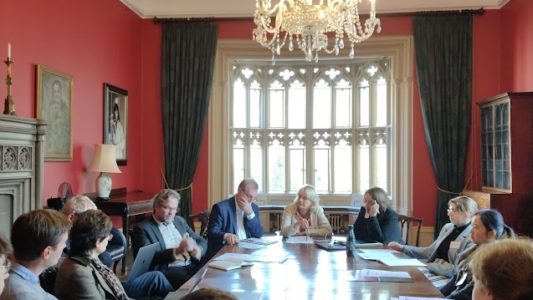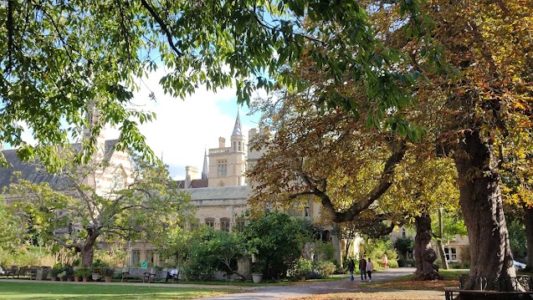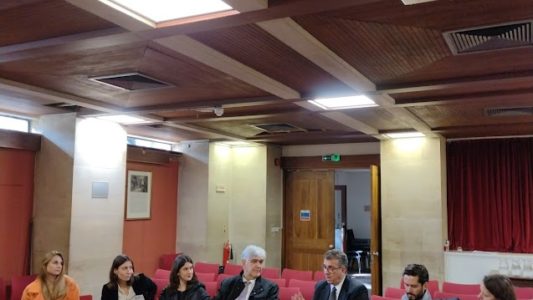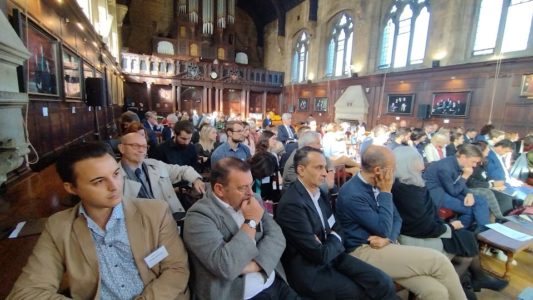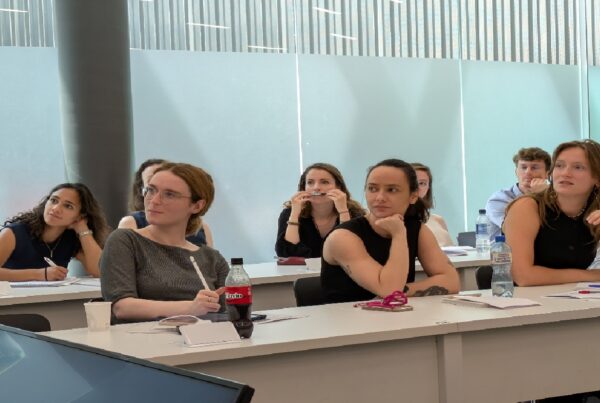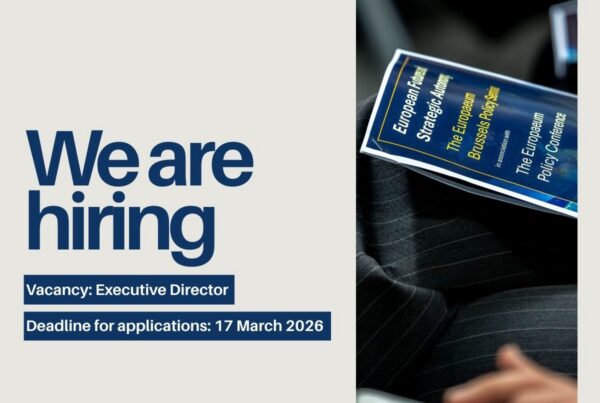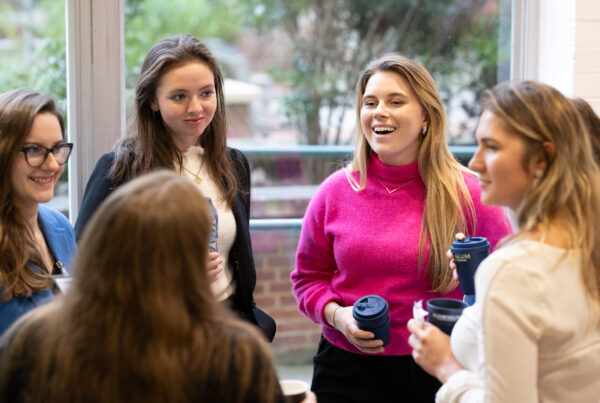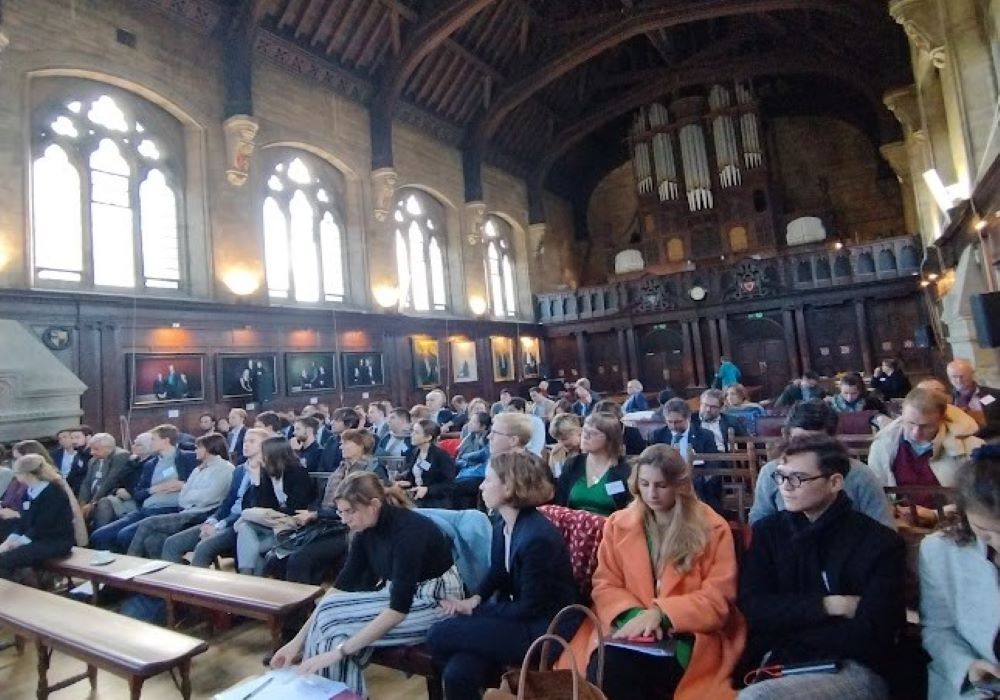
This year the Europaeum celebrates 30 years of bringing the policy and academic worlds together and providing unique opportunities for masters and doctoral candidates to meet in interdisciplinary, multi-stakeholder settings.
To mark this occasion Vice-Chancellors, Rectors and other senior academics gathered with more than one hundred alumni from all eighteen of the Europaeum member universities to debate Challenges for Universities, at a conference organized by Dr Andrew Graham, Europaeum Trustee and former master of Balliol (2001-2011). The college grounds proved to be the perfect setting to showcase the best of Oxfordshire weather to the Europaeum family.
A glittering array of speakers set out the key issues under the themes (i) Universities and Society – their impact on each other (ii) Challenges to Academic Freedom and (iii) Artificial Intelligence and its Ethics – what role for universities?
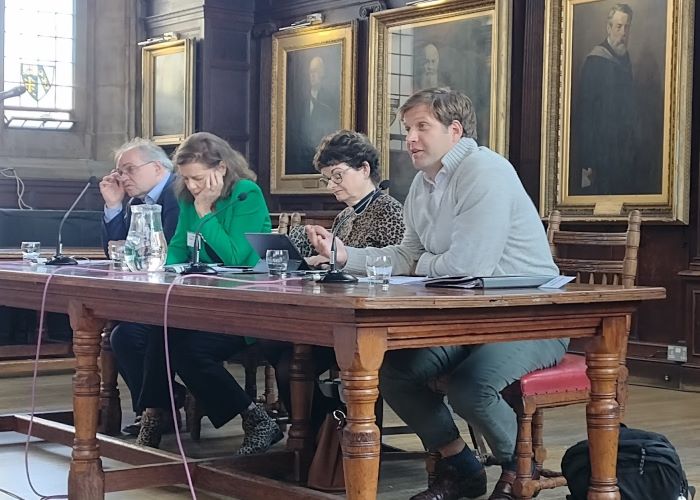
Following welcoming remarks from our Executive Director, Dr Hartmut Mayer, the first panel asked how can universities build trust with other stakeholders? How can they best help communities and policy makers? How can we make research more inclusive? And how can we best nurture the talent of upcoming generations, and help them to make a difference? Prof. Ngaire Woods and Dr Andrew Serazin drew on their extensive experience of working with non-academic stakeholders to offer some answers.
Prof. Jan Wouters and Prof. Wim van den Doel outlined how academic freedom is under threat across Europe in more ways than ever before. As well as discussing political interference, key questions included are private funders a threat or an opportunity? How do we preserve our autonomy amidst civil society pressure and increasing bureaucratization?
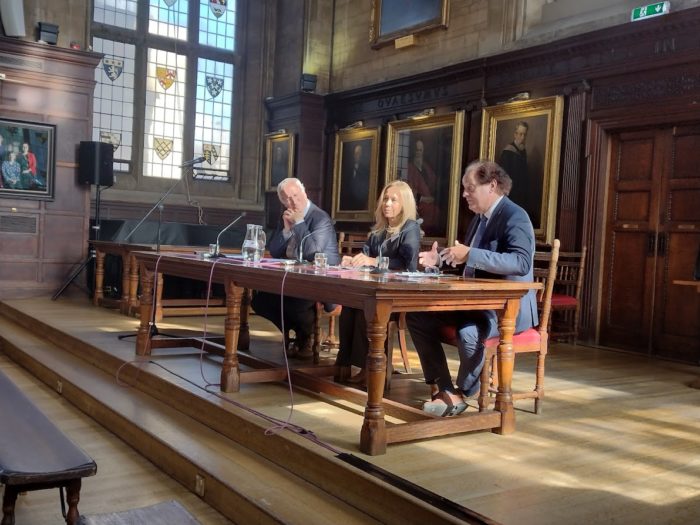
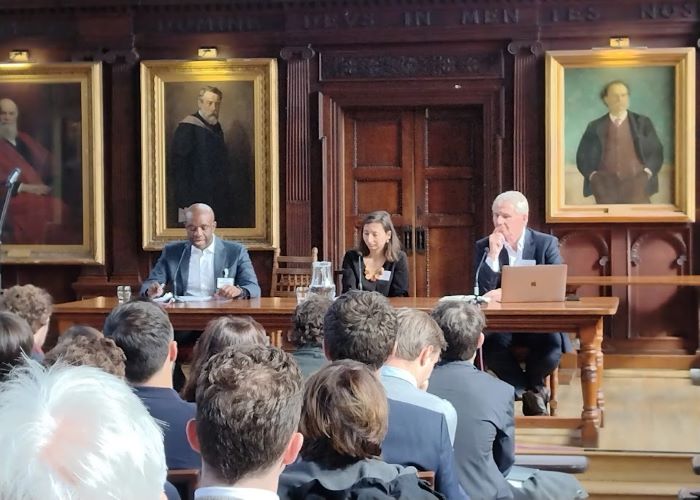
As the digital transformation accelerates, AI is both a challenge and an opportunity for universities. What are the responsibilities of universities in developing and regulating AI? How can we help shape the ethical framework for emerging technologies? And how can we alleviate public concerns about AI shaping society? Prof. James Manyika shared his insights from the industry while Prof. Sir Nigel Shadbolt drew upon his career in AI research and ethics.
In the spirit of making connections across disciplines, universities, and sectors, the rest of the afternoon saw delegates discuss their own ideas about how universities can address current challenges. Drawing on our varied backgrounds, we had lively conversations about what the modern university is and what it could be. These continued in our final plenary as the discussion groups shared their perspectives and ideas with our panelists, as well as Prof. Dame Sally Mapstone and Prof. Isabel Gil.
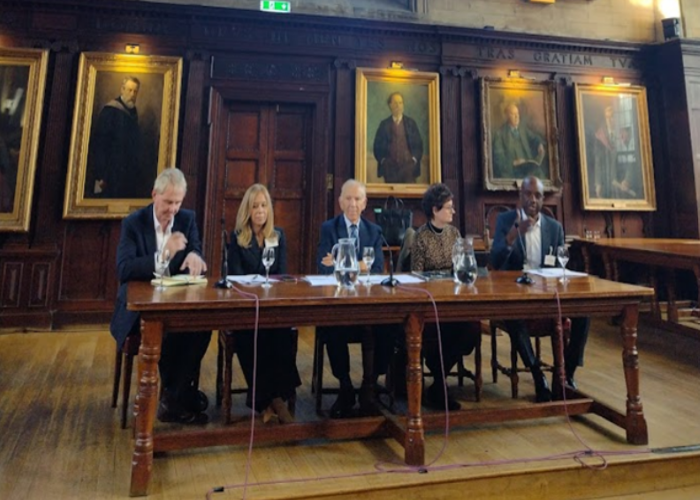
In the early evening, the Conference moved to the high-tech lecture room of the Mathematical Institute, to hear a rousing video address by Ursula von der Leyen, President of the European Commission, followed by a lecture of great clarity and intellectual depth from Professor Timothy Garton Ash on Europe post-war and Europe post-wall. All of this was live streamed to Europaeum Alumni and is available on our YouTube channel.
At the end of a long and fruitful day filled with enriching exchanges, the conference closed with a dinner back in Balliol. There, with the candlelight reflecting in the silver, people from different countries, cultures and disciplines, young and old, talked on into the night.
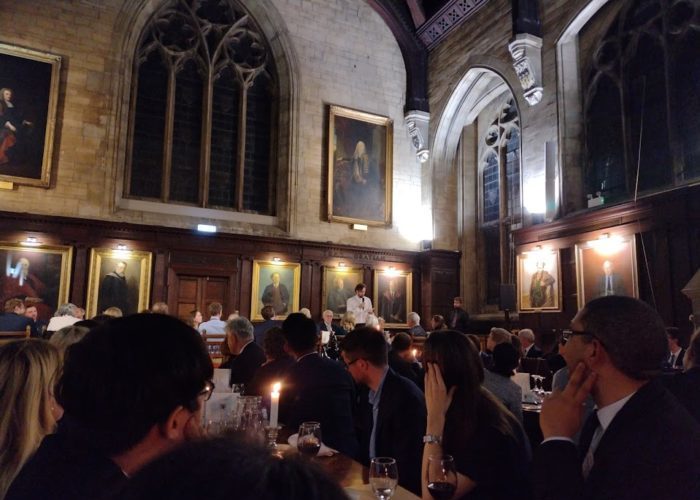
As the formal launch of our alumni programme was announced, two of our alumni shared their fond experiences of our MA and Scholars programmes.
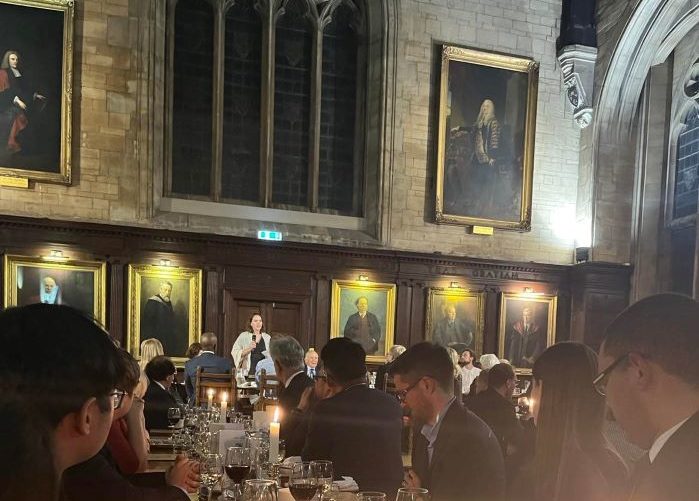
Testimonials
‘The theme of the day was very well chosen. It made me realise that I have been thinking a lot recently about the challenges of working in higher education (as someone currently without a permanent job, and thinking about the next steps), whereas this conference was a timely reminder that I do really believe in the importance of universities and want to advocate for them in society.’
‘I learnt quite a bit, including in interacting with the youngest part of the crowd’, ‘a truly exceptional weekend’, ‘I could not have imagined a better programme to launch the Alumni community’, ‘an immense success!’, ‘I was impressed by the quality of the Scholars and immensely enjoyed my different conversations with them’, ‘the organization was absolutely exceptional’, ‘it created “a true magic” – congratulations’.
‘It was an extraordinary day and evening. [The Europaeum is] a model for what deep, meaningful collaborative partnerships can look like. Since Saturday, I’ve been returning again and again to the many salient ideas shared throughout the day on trust building, and cross-sector communities of thought and collaboration.’
‘This was exactly the kind of event I would like to see in future – broad in scope and cross-disciplinary, but also relevant to all the Europaeum scholars specifically (since we are all or were all in higher education), as well as with interesting and varied speakers.’
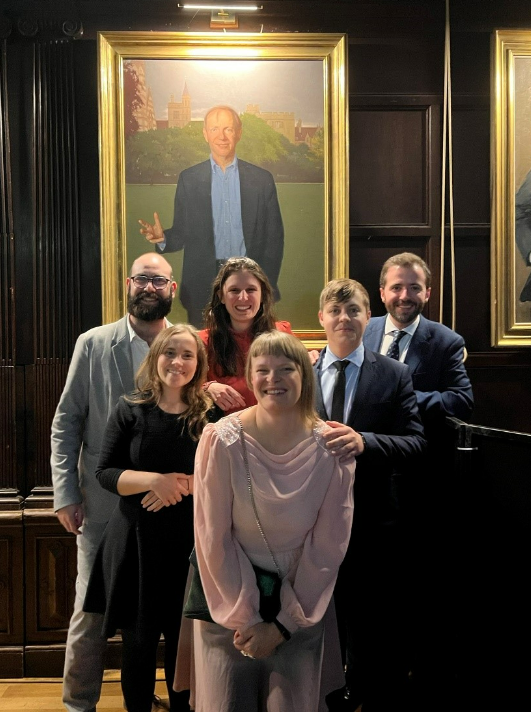
Several Scholars pose with the portrait of Dr Andrew Graham, founder of the Scholars Programme and one of the organizers of the anniversary conference.
The Conference in Action
The Europaeum thanks everyone who has worked hard to put this conference together. A special thanks goes to the staff at Balliol College and the Europaeum Team.

